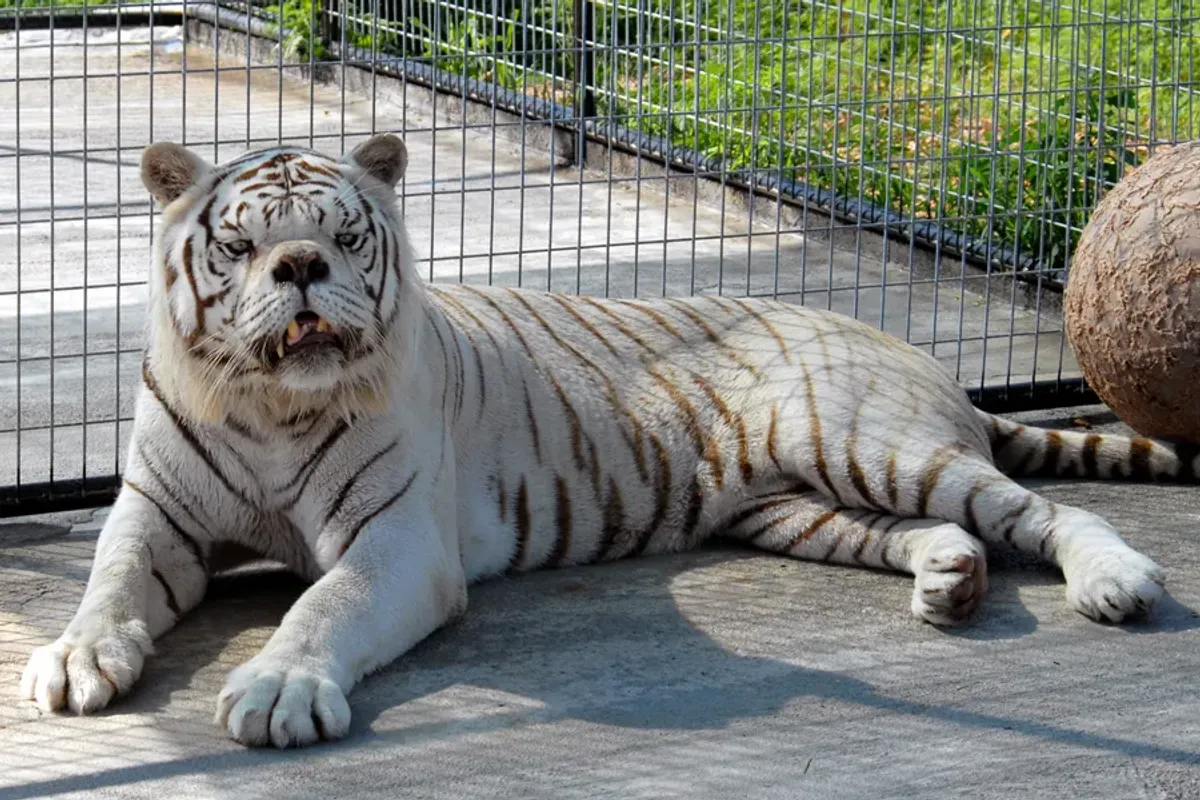Animals with Down Syndrome: A Compassionate Look into Their Lives
Explore the world of animals with Down syndrome in this informative article. Discover their unique challenges, heartwarming stories, and how to support them.
Introduction
Animals, like humans, can sometimes face unique genetic conditions, including Down syndrome. While the occurrence of Down syndrome in animals is relatively rare, it’s essential to understand and empathize with these remarkable creatures. In this article, we will delve into the lives of animals with Down syndrome, shedding light on their challenges, sharing heartwarming stories, and providing insights into how we can support them.

Understanding Down Syndrome in Animals
What is Down Syndrome in Animals?
Down syndrome, a genetic condition caused by an extra copy of chromosome 21 in humans, can also occur in animals. This condition results in developmental and cognitive challenges. In animals, it’s often referred to as “trisomy 21.”
How Does Down Syndrome Affect Animals?
Animals with Down syndrome may exhibit a range of physical and cognitive differences. These include facial abnormalities, learning difficulties, and, in some cases, a higher susceptibility to certain health issues.
Stories of Resilience
Heartwarming Tales of Animals with Down Syndrome
The Story of Milo the Cat
Milo, a domestic cat, captured hearts worldwide when his unique condition became known. Despite his cognitive challenges, Milo led a happy life with his loving owner, teaching us that every animal, regardless of their condition, deserves love and care.
Luna’s Journey
Luna, a Labrador Retriever, overcame her cognitive difficulties with the unwavering support of her family. Her determination and the patience of her owners showed us the incredible resilience of animals with Down syndrome.
Supporting Animals with Down Syndrome
Providing a Loving Environment
To ensure the well-being of animals with Down syndrome, it’s crucial to create a nurturing environment. Here are some tips:
- Regular Veterinary Care: Routine check-ups and vaccinations are essential to monitor the animal’s health and address any issues promptly.
- Structured Routine: Establishing a consistent daily routine can help animals with Down syndrome feel more secure and comfortable.
- Positive Reinforcement: Use positive reinforcement techniques to encourage good behavior and stimulate cognitive development.
- Adaptive Toys: Provide toys and puzzles that are tailored to the animal’s abilities, promoting mental stimulation.
FAQs
Can Animals with Down Syndrome Lead Happy Lives?
Absolutely! With love and proper care, animals with Down syndrome can live fulfilling and joyful lives.
Is Down Syndrome in Animals the Same as in Humans?
While it shares similarities, Down syndrome in animals may manifest differently due to species differences.
Can Down Syndrome in Animals Be Diagnosed?
Yes, through genetic testing or observation of physical and cognitive differences.
Are Certain Animals More Prone to Down Syndrome?
Some species may have a higher likelihood of trisomy 21, but it can occur in various animals.
What Challenges Do Animals with Down Syndrome Face?
They may struggle with learning, communication, and may require additional medical attention.
How Can I Support Organizations Helping Animals with Down Syndrome?
You can donate to or volunteer with organizations dedicated to the welfare of these animals.
Conclusion
Animals with Down syndrome are extraordinary beings that deserve our compassion and support. By understanding their condition and providing a loving environment, we can make a positive impact on their lives. Let us celebrate their resilience and uniqueness, cherishing the valuable lessons they teach us about empathy and acceptance.

